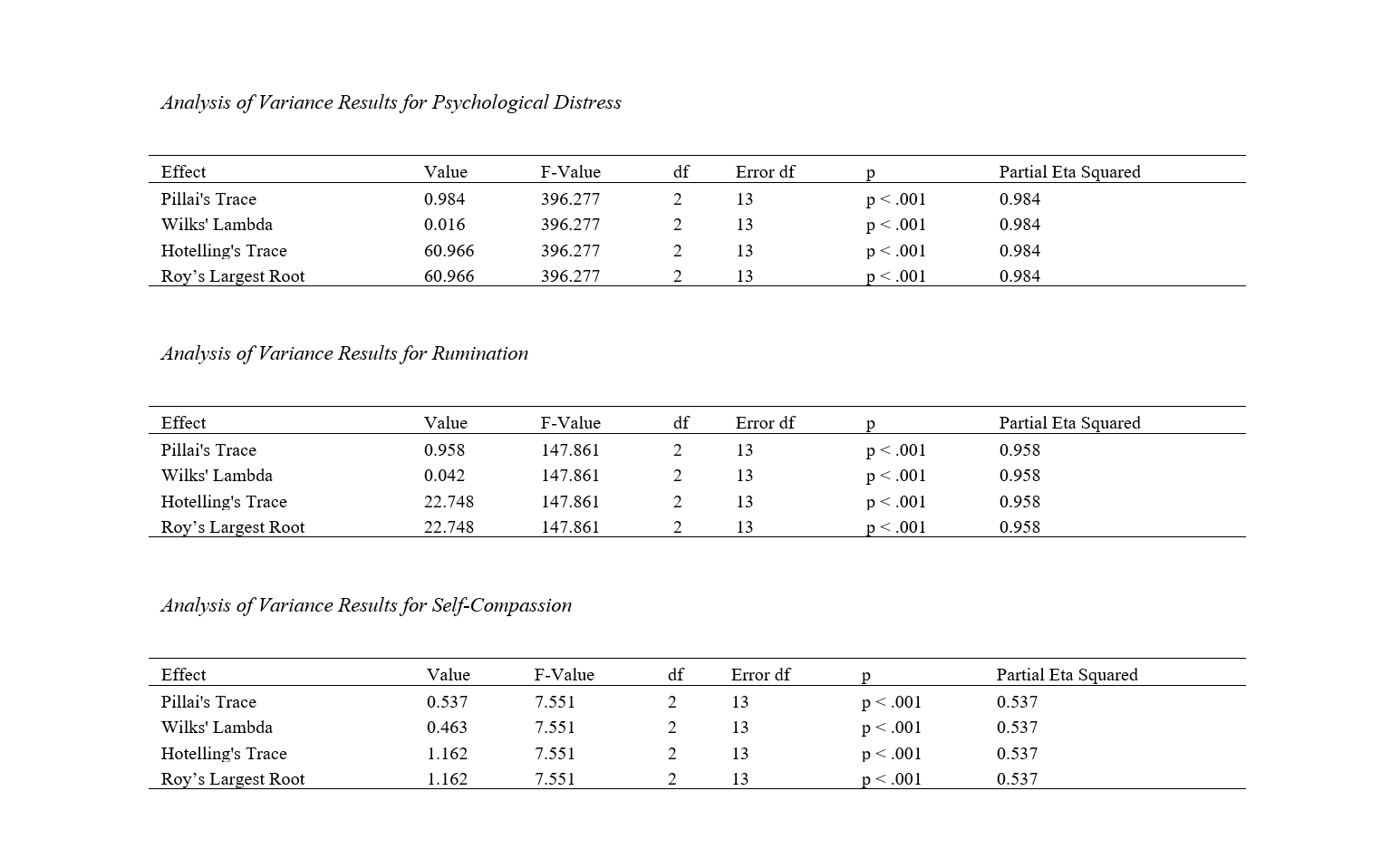Effectiveness of Mindfulness-Based Cognitive Therapy on Psychological Distress Syndromes, Rumination, and Self-Compassion in Students with Psychological Distress
Abstract
Objective: The current research was conducted with the aim of evaluating the effectiveness of Mindfulness-Based Cognitive Therapy (MBCT) on psychological distress syndromes, rumination, and self-compassion in students experiencing psychological distress.
Methods and Materials: This study was applied in nature and employed a quasi-experimental design, specifically a pretest-posttest control group design with a three-month follow-up period. The statistical population consisted of all female medical science students in Tehran during the academic year 2020-2021, from which 30 individuals were selected through purposive sampling and randomly assigned into two groups of 15 (15 in the experimental group and 15 in the control group). Data were collected using the Lovibond and Lovibond (1995) Depression, Anxiety, and Stress Scales, the Nolen-Hoeksema and Morrow (1993) Rumination Scale, and the Neff (2003) Self-Compassion Scale. Mindfulness-Based Cognitive Therapy sessions were conducted in 8 weekly 90-minute group sessions. Data were analyzed through analysis of variance.
Findings: The results of the data analysis indicated that Mindfulness-Based Cognitive Therapy was effective in reducing rumination, psychological distress syndromes, and in increasing self-compassion among students in the experimental group experiencing psychological distress, compared to the control group students who also experienced psychological distress.
Conclusion: Based on the results of this study, health professionals can use Mindfulness-Based Cognitive Therapy to improve rumination, psychological distress syndromes, and self-compassion among students experiencing psychological distress.
Downloads

Downloads
Additional Files
Published
Submitted
Revised
Accepted
Issue
Section
License
Copyright (c) 2024 Mahshid Khavari (Author); Kobra Haji Alizadeh (Corresponding Author); Eghbal Zarei, Fariborz Dortaj (Author)

This work is licensed under a Creative Commons Attribution-NonCommercial 4.0 International License.








